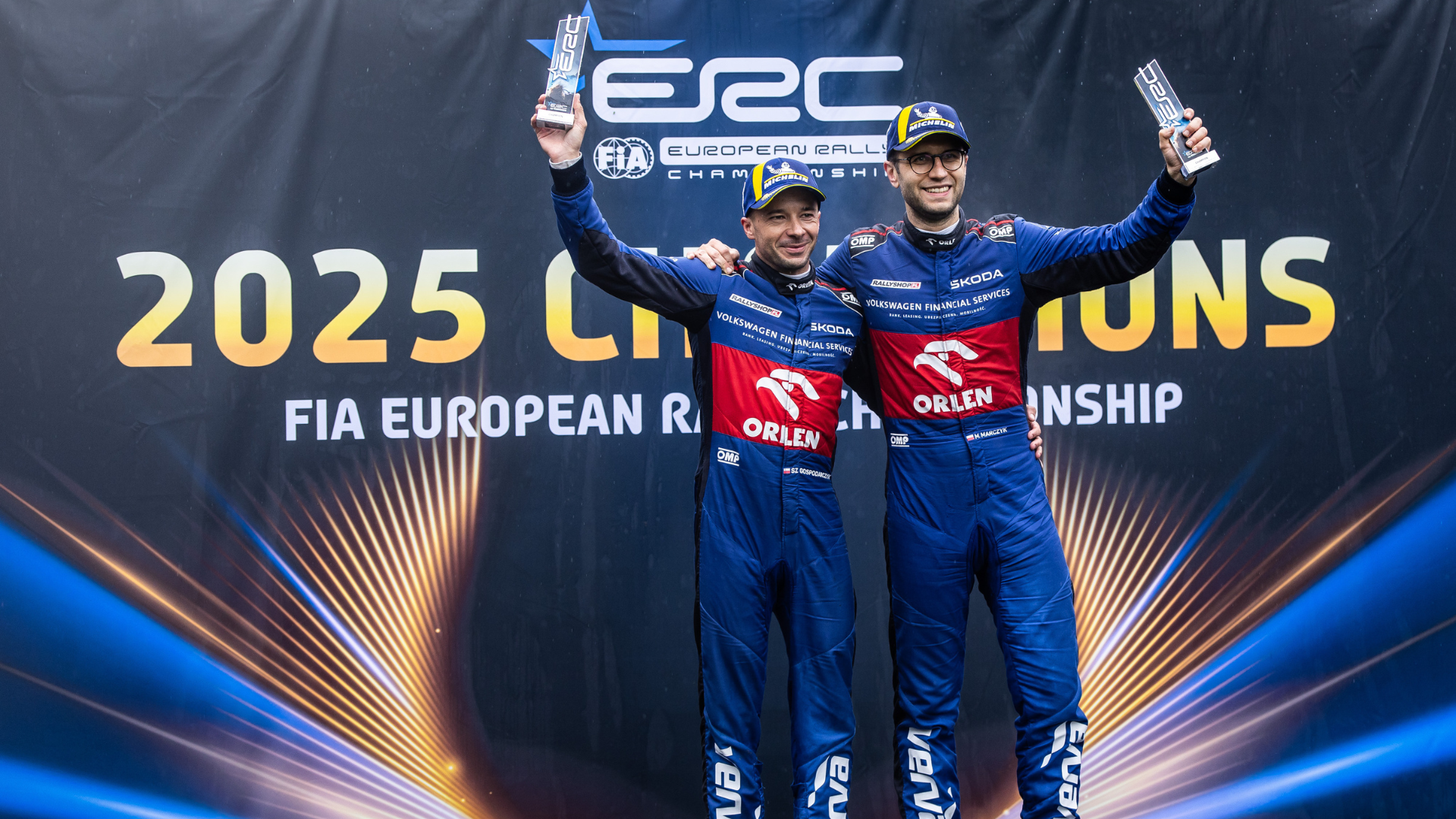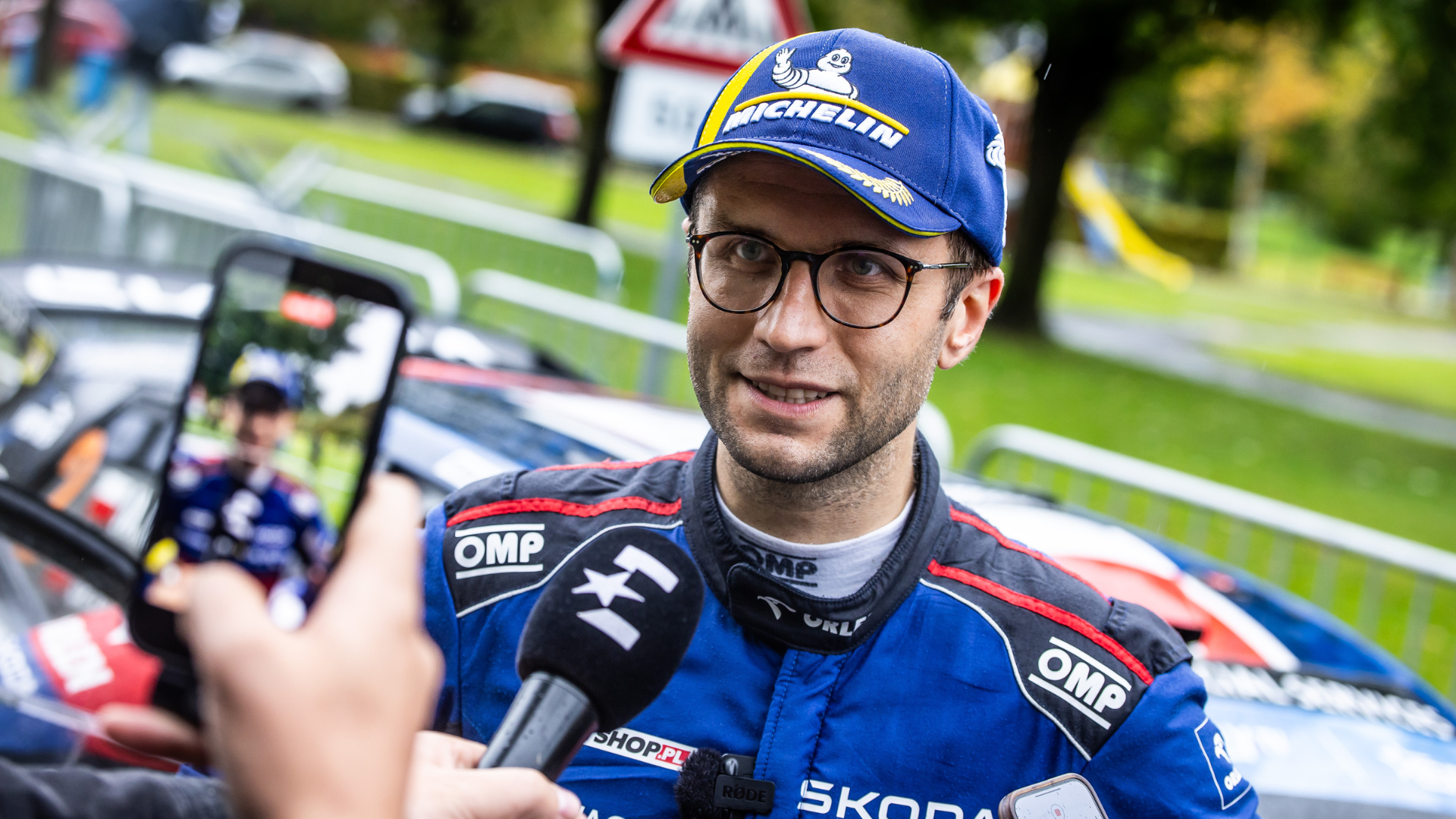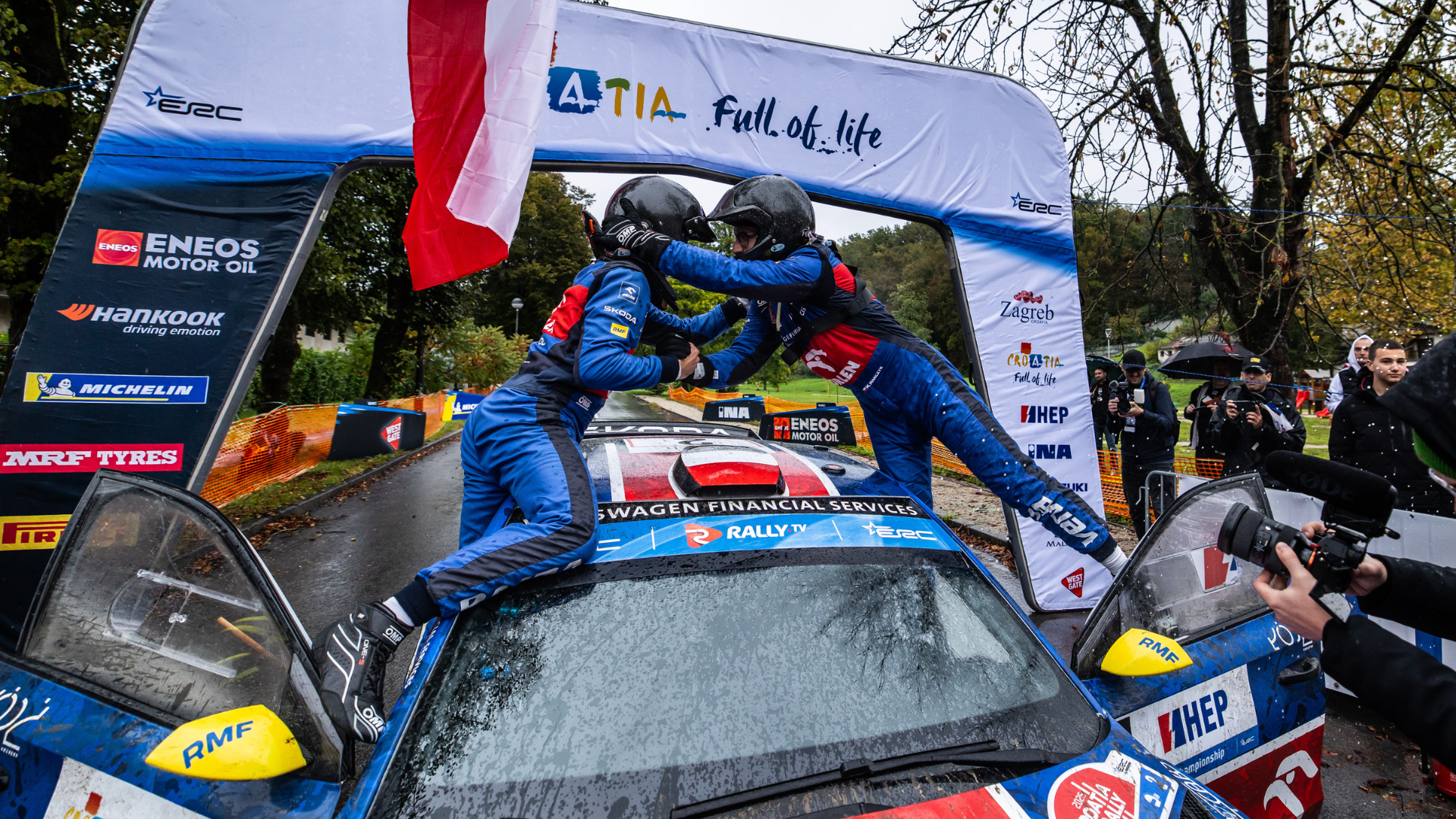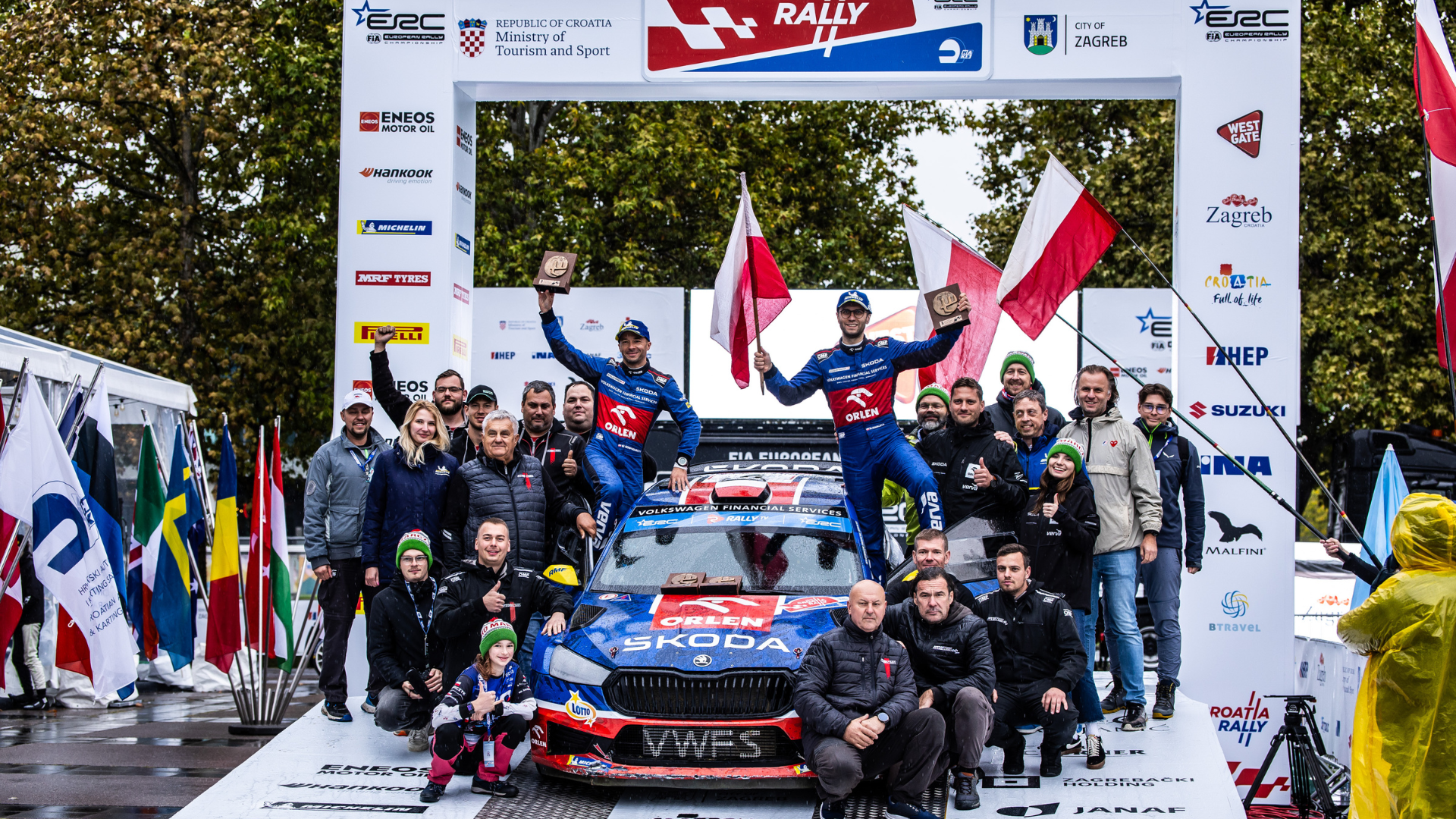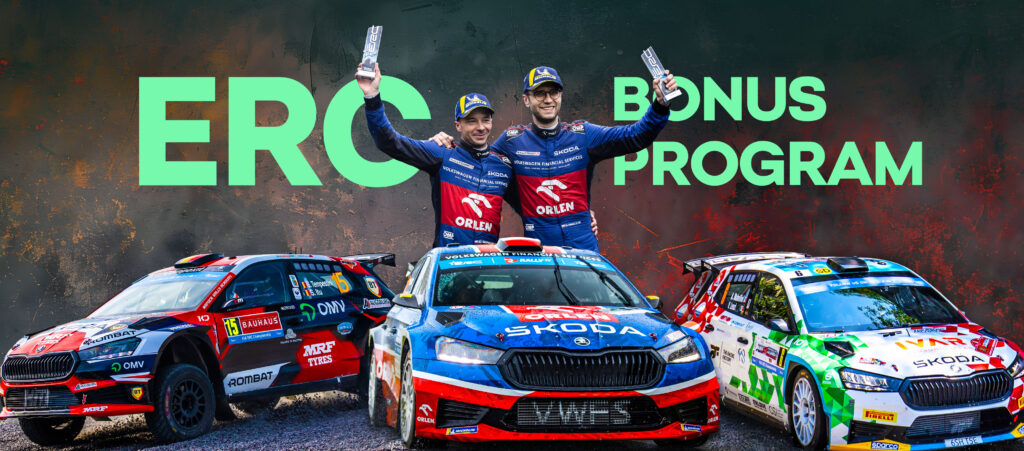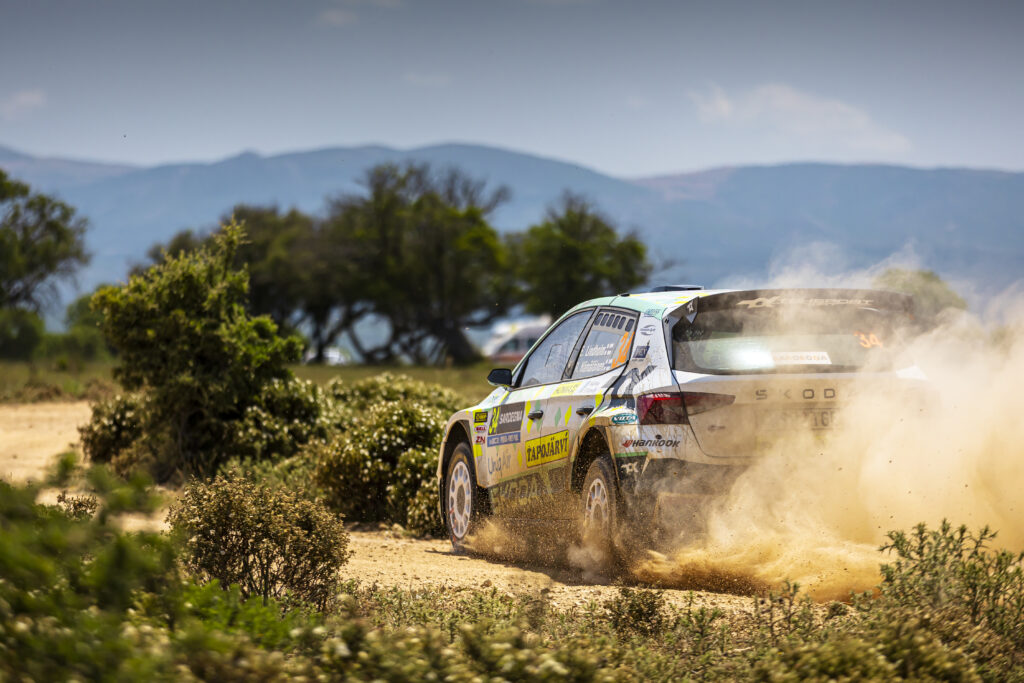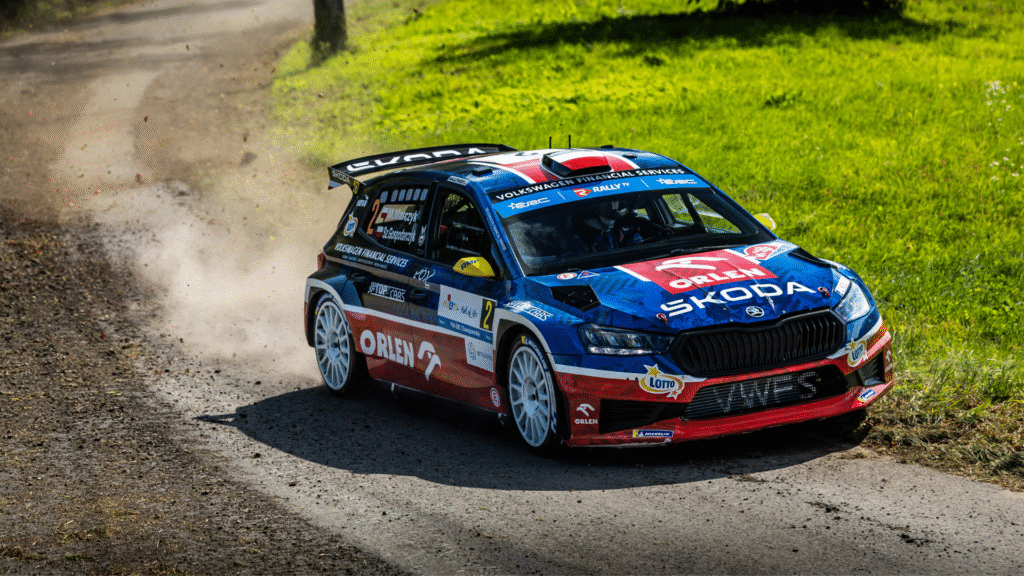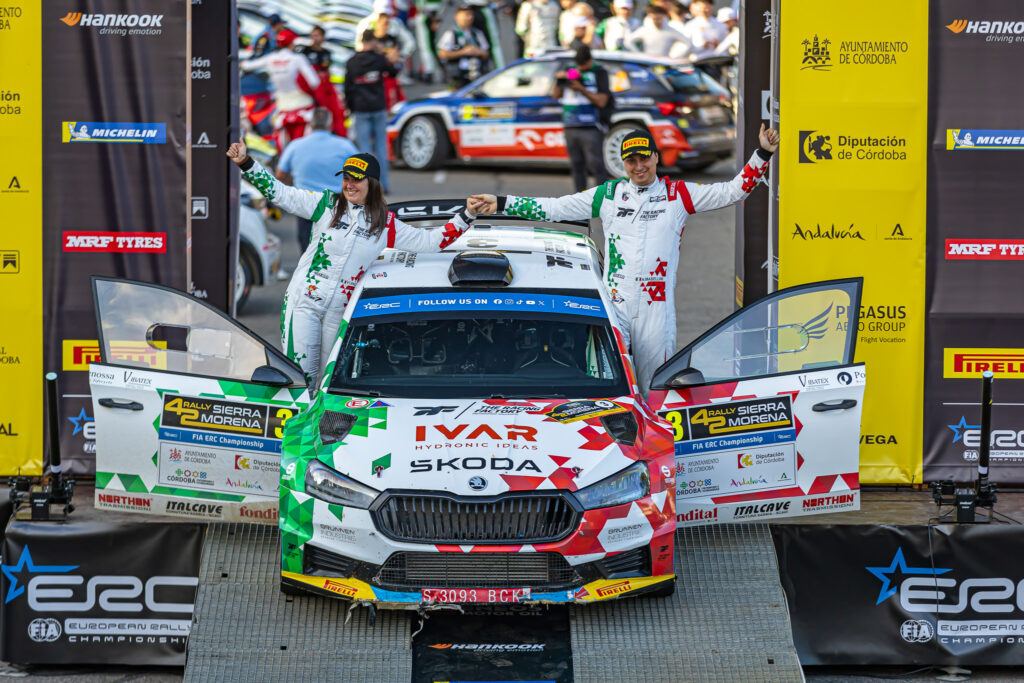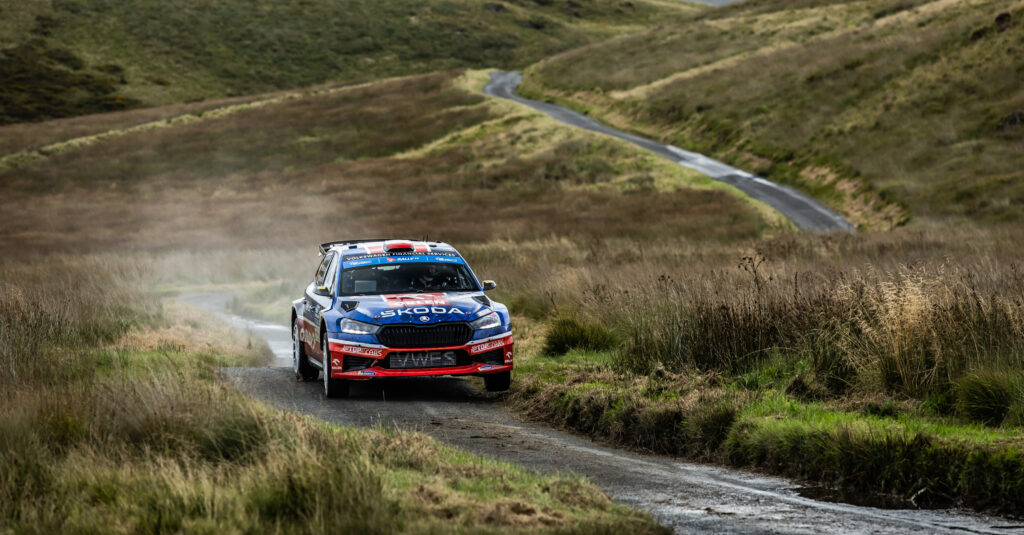Polish driver Miko Marczyk is this year’s FIA European Rally Champion. He fought for the title until the very end of the Croatian Rally, confirming what has always defined him as a competitor – not only his speed, but above all his performance consistency. Winning the title was the fulfilment of a dream. Yet, there has been little time for celebration, as Miko is already looking ahead to the future.
On Sunday, October 5, Marczyk joined the ranks of his Polish compatriots who have previously claimed the European Rally Championship crown. He follows in the footsteps of Kajetan Kajetanowicz, a three-time champion between 2015 and 2017, Krzysztof Hołowczyc (1997), and Sobiesław Zasada, who triumphed in 1966, 1967, and 1971. Marczyk is the first Polish driver to win the title behind the wheel of a Škoda.
The title brings success back to the brand that has accompanied Marczyk throughout virtually his entire rally career, both competitively and through numerous other activities. He earned it not only through speed, but also through reliability and a strong work ethic that extends beyond motorsport itself.
How do you feel a few days after winning the title?
It’s definitely a dream come true. I’ve been working towards this for quite a few years. In 2018, I drove a Škoda Fabia Rally2 for the first time, and a year later, at the age of 23, I became Polish champion with that car. I repeated the achievement in 2021, though by then my co-driver Szymon Gospodarczyk and I were already focusing more on the European championship. In both 2021 and 2024 we finished third overall.
This year we finally managed to reach the top spot, and it feels amazing. At the same time, as soon as the dream came true, thoughts about what to do next started racing through my head. After taking a few days to rest, I can finally enjoy the feeling — I’m really happy. And I have to thank our entire team and all our partners who made this possible.
So, what are your plans for the future?
At this point, I really can’t and don’t want to confirm anything yet. I’m 29 years old, and I believe I still have several years at the top ahead of me. In a way, the title has reignited my motivation to keep going. We’re already working on next year’s programme. Of course, defending the title is an option, but we are also exploring the possibility of stepping up to WRC. The change in regulations expected around 2027 could create an ideal opportunity, but we’ll see how things develop. It’s a big project that depends on many factors and would require an immense effort from my side. So, for now, there’s really nothing I can confirm.
What lessons have you learned from this season?
Consistency was definitely our strongest asset this year. We made very few mistakes. We’re fast on both tarmac and gravel — there isn’t a particular surface where we’re significantly stronger. In every rally, we were fighting for podium positions, and that’s what makes us strong.
Does the Fabia RS Rally2 contribute to that consistency?
Absolutely. The car is both reliable and fast. It performs well on various surfaces and across different types of rallies — it’s not like it’s quick on one and slow on another. I think Škoda Motorsport has steadily improved with each generation of its rally cars. From the Fabia Rally2 to the Fabia Rally2 evo, and now the Fabia RS Rally2, the car has become an increasingly versatile competition car.
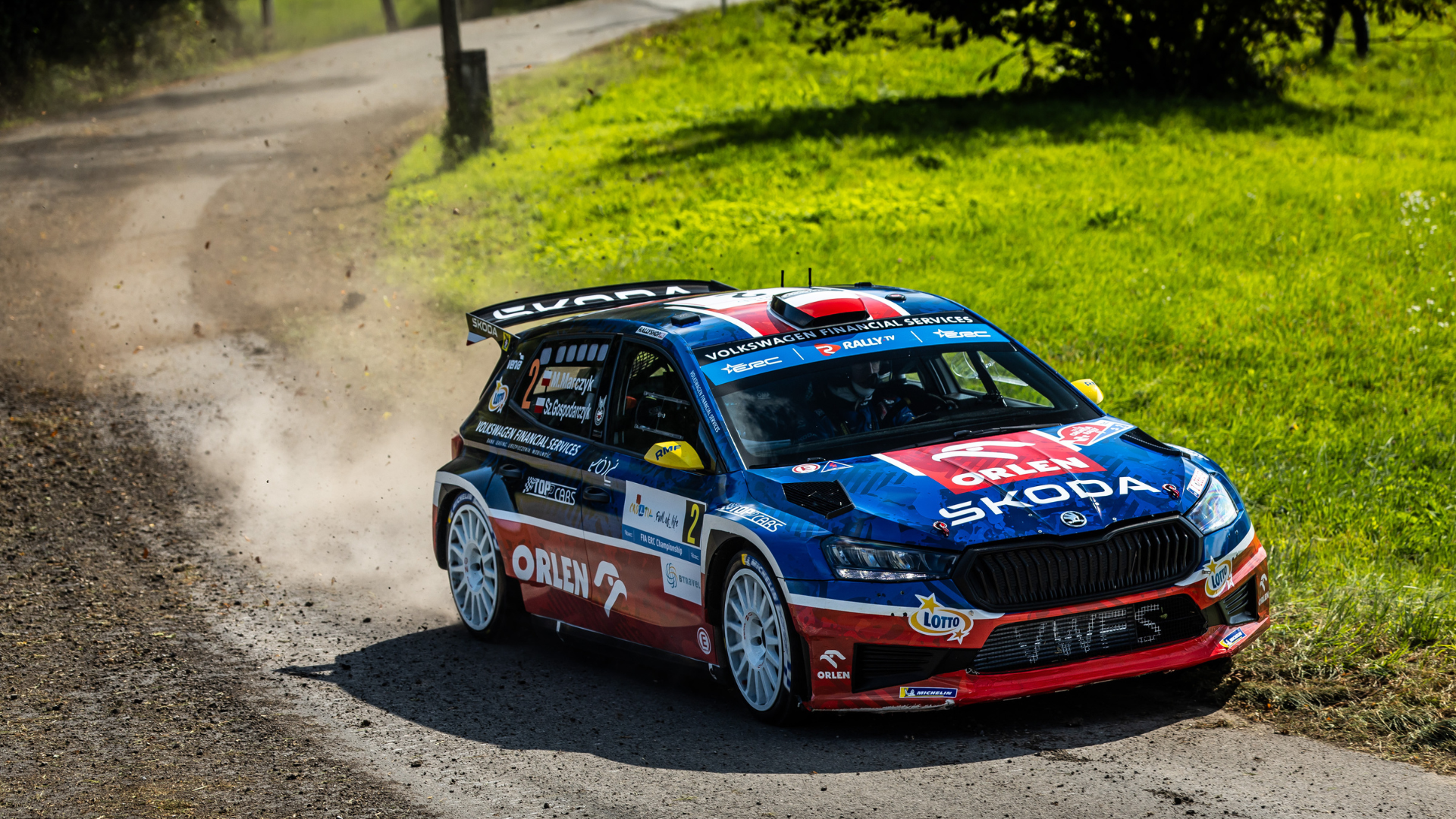
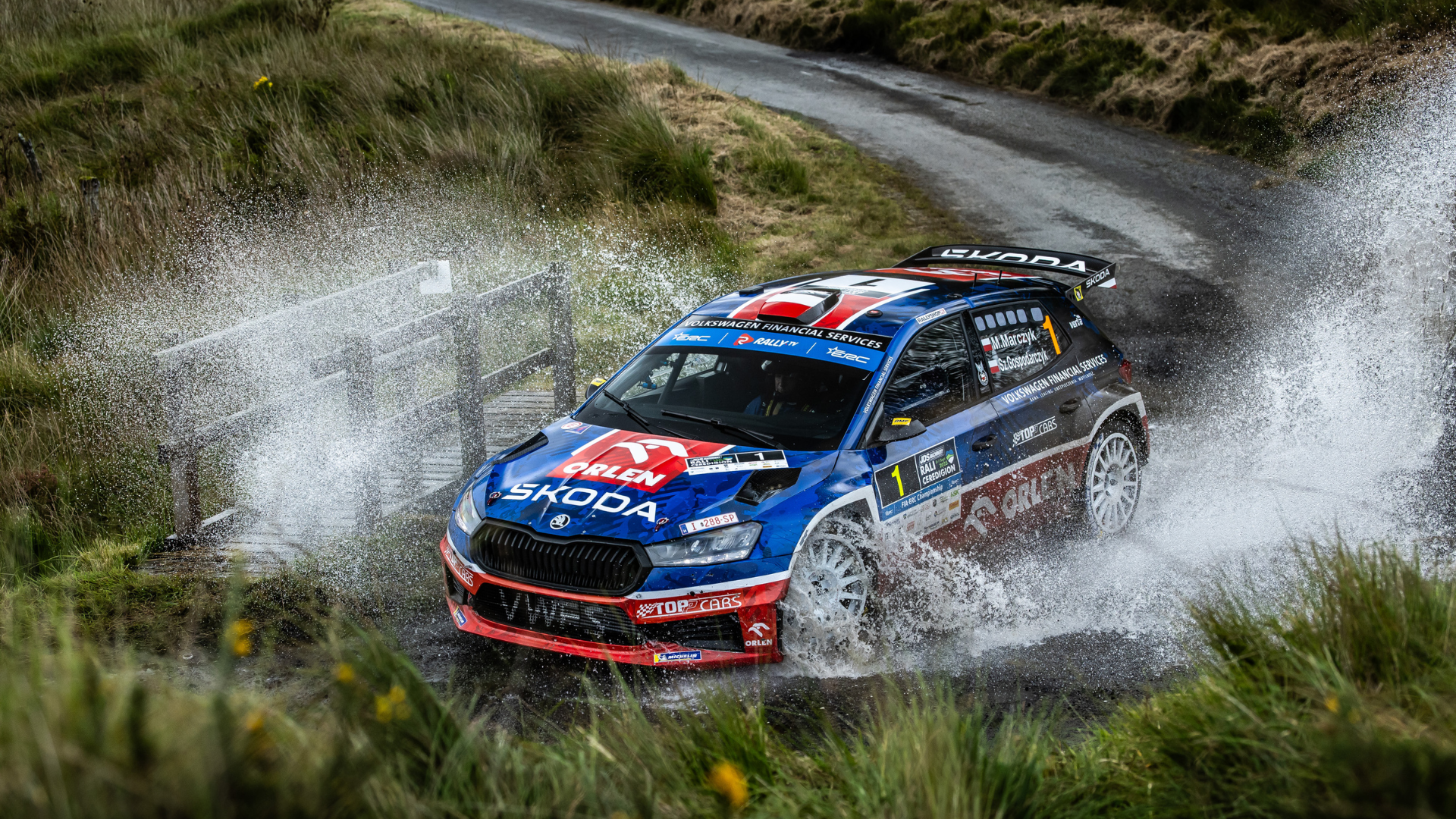
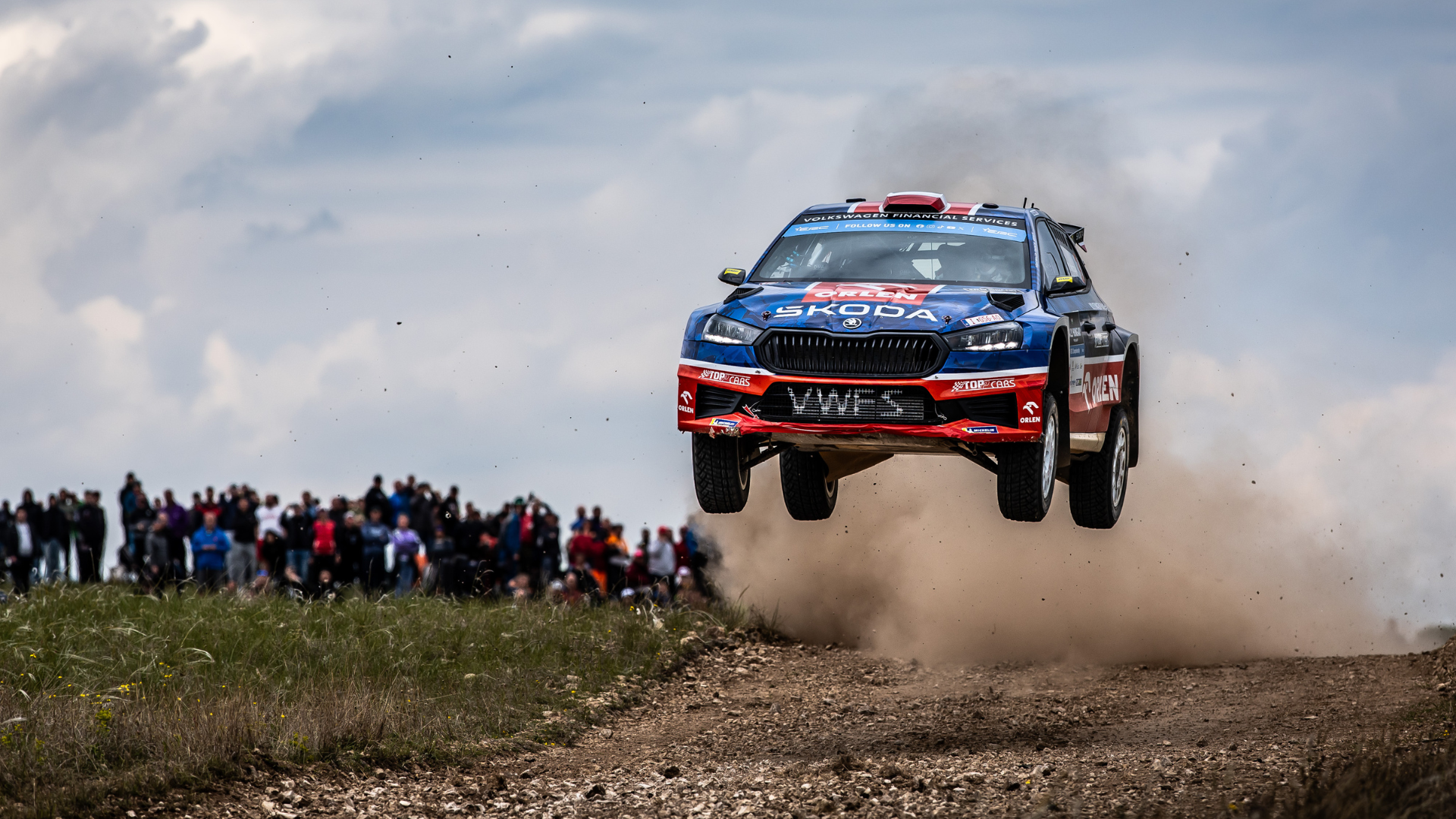
And where, for example, do you personally look for improvement?
There’s always room to improve in terms of car setup and fine-tuning adjustments. When the car feels right, I’m fast — but when it doesn’t, my pace tends to drop more than it should.
What first drew you to rallying?
When I was a teenager, I was simply a motorsport fan. I was looking for something I could do well, something that would suit me. At fifteen, I tried go-karting, and it clicked instantly — no one had to explain to me how to drive or find the right line; it just came naturally. That’s how my journey started. Later I had to decide between circuit racing and rallying. My heart was always more drawn to rally, and in Poland, it also proved a more realistic path in terms of finding partners. From there, everything developed quite quickly.
What message would you give to young talents?
It’s all about how you understand and use your potential. If you have talent and good driving technique, that gives you an advantage — but it’s only one piece of the puzzle. You also need passion, determination, and above all, a lot of hard work. You have to earn your success. A young rally driver often has to act as his own manager, handling many things around him. That’s crucial, because our sport is financially demanding. If you can manage that side of it, then you must also believe in yourself — but be patient, because success doesn’t necessarily come right away.
